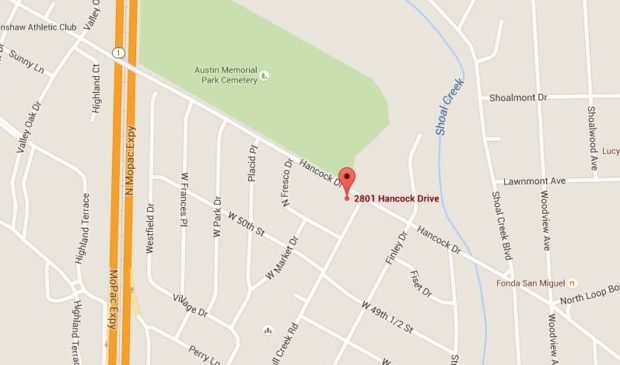After some haggling, commission approves a few apartments in Allandale
Monday, July 25, 2016 by
Jack Craver Allandale residents concerned about the arrival of intense commercial activity in a largely residential neighborhood achieved a partial victory at the Zoning and Platting Commission on Tuesday.
Robert P. Stern, who is planning to add a 2,424-square-foot restaurant and 994 square feet of retail space to the southwest corner of Hancock Drive and Bull Creek Road, already has the commercial zoning necessary to allow just about any type of business on the site. But because he was interested in adding two or three apartment units to the development, he needed to get the site rezoned for mixed use.
The Allandale Neighborhood Association was not against adding a few nearby apartments but argued that the commission should approve the zoning request only if the applicant would agree to prohibit certain types of businesses on the site.
Jeff Shindler, Stern’s agent, told the commission that his client was happy to bar a number of activities that almost always displease neighbors. There would be no sex shops, bail bond services, pawn shops or transitional housing, for instance. Those types of businesses would make the newly constructed residences less attractive to would-be tenants, he pointed out.
However, the neighborhood group listed 22 uses it wanted barred, most of which Shindler said his client could not agree to, such as hospital, medical office, car sales, equipment storage and hotel/motel. He did agree, with a shrug, to prohibit the site’s use as a campground or lumberyard.
Caroline Reynolds, a member of the Allandale Neighborhood Association who signed up to speak against the rezoning, urged the commission to restrict the uses in such a way as to “keep it quiet” in the area, noting nearby schools and a cemetery.
Commissioner Gabriel Rojas cautioned his colleagues not to impose too many restrictions on the property, reminding them that the current zoning already allows the applicant the right to engage in just about any commercial use possible.
If the commission tried to put in place too many commercial prohibitions, Rojas said, Stern could simply withdraw the request for a zoning change, and the city wouldn’t get any housing out of the deal.
“Putting two or three residences on top (of the retail) is a great move, to be able to add units to the neighborhood,” he said.
The restrictions proposed in a motion by Commissioner Ann Denkler – those agreed to by the applicant, along with automotive repair service – seemed reasonable to Rojas. He withdrew his support for her motion, however, when she added a number of restrictions proposed by commissioners Jolene Kiolbassa and Betsy Greenberg: outdoor entertainment, sports and recreation, medical offices and hospitals.
Rojas noted that the billboard in front of the development specifically promotes the site for medical uses, and he said he would not be able to support the amended motion.
Five of the seven commissioners present voted in favor of the motion, but opposition from Rojas and Commissioner Bruce Evans denied it the necessary six votes for approval.
Denkler responded by agreeing to remove the prohibition on medical uses from her motion. That motion passed 6-1, with only Kiolbassa in dissent.
In a brief conversation with the Austin Monitor after the meeting, Stern appeared baffled by the debate over restricting commercial activities on the site. The retail development would almost definitely include medical offices, he said. Had the commission voted to prohibit that use, he added, he would have ditched the application for mixed-use zoning and not added any housing to the site.
Greenberg later said that she wasn’t entirely satisfied with the commission’s recommendation but that she voted to support it because she thought the deal might end up worse if it went to City Council with no recommendation, and therefore little guidance, from the commission. She didn’t understand, she said, why the developer insisted on retaining the right to build a hospital or a hotel on the site.
“A lot of the things that he was unwilling to eliminate, I didn’t really understand,” she said. “You wonder if it’s really about him building three apartments.”
Rojas reiterated that all the developer gained from the commission was the right to build residential.
“We didn’t do anything that in any way increased his building envelope,” he said.
The Austin Monitor’s work is made possible by donations from the community. Though our reporting covers donors from time to time, we are careful to keep business and editorial efforts separate while maintaining transparency. A complete list of donors is available here, and our code of ethics is explained here.
You're a community leader
And we’re honored you look to us for serious, in-depth news. You know a strong community needs local and dedicated watchdog reporting. We’re here for you and that won’t change. Now will you take the powerful next step and support our nonprofit news organization?









